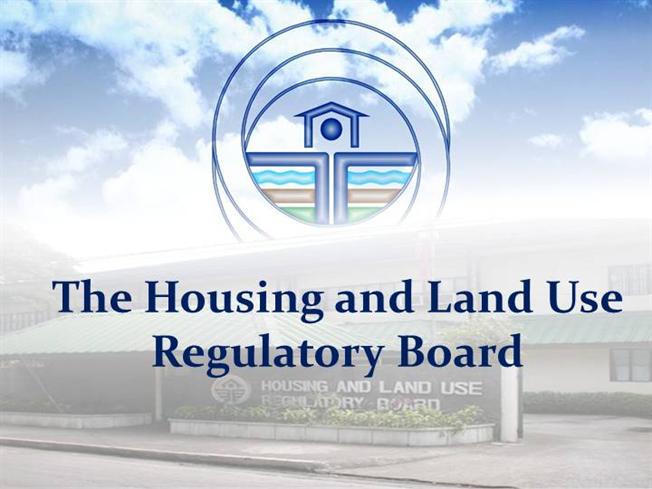Housing and Land Use Regulatory Board's Jurisdiction over non-meber, association disputes
A dispute between a homeowners association and a non-member homeowner is an intra-association dispute; thus, jurisdiction belongs to the Housing and Land Use Regulatory Board.[1]

In JAKA Investments Corporation v. Urdaneta Village Association, Inc.,[2] the Supreme Court held that "[c]ases involving intra-association controversies fall under the jurisdiction ofthe Housing and Land Use Regulatory Board, the government agency with the technical expertise on the matter."[3]
Section 20(d) of Republic Act No. 9904 provides:
SECTION 20. Duties and Responsibilities of the HLURB. -In addition to the powers, authorities and responsibilities vested in it by Republic Act No. 8763, Presidential Decree No. 902-A, Batas Pambansa Big. 68 and Executive Order No. 535, Series of 1981, as amended, the HLURB shall:
. . . .
(d) Hear and decide intra-association and/or inter-association controversies and/or conflicts, without prejudice to filing civil and criminal cases by the parties concerned before the regular courts: Provided, That all decisions of the HLURB are appealable directly to the Court of Appeals[.]
Section 4(w) of the law's Implementing Rules and Regulations defines an "intra-association dispute":
(w) Intra-association dispute refers to a controversy which arises out of the relations between and among members of the association; between any or all of them and the association of which they are members; and between such association and the State insofar as it concerns their individual franchise or right to exist. It refers also to a controversy which is intrinsically connected with the regulation of associations or dealing with the internal affairs of such entity. (Emphasis supplied)
The next question that may be asked is whether the Housing and Land Use Regulatory Board has jurisdiction even if petitioner is not a member of the homeowners' association.[4] The Supreme Court answered in the affirmative.
Republic Act No. 9904 differentiates between a homeowner and a member. Section 30) defmes a homeowner:
(j) "Homeowner" refers to any of the following:
(1) An owner or purchaser of a lot in a subdivision/village;
(2) An awardee, usufructuary, or legal occupant of a unit, house and/or lot in a government socialized or economic housing or relocation project and other urban estates; or
(3) An informal settler in the process of being accredited as beneficiary or awardee of ownership rights under the CMP, LTAP, and other similar programs.
"Member" is not specifically defined, but Section 6 of the law states that "[a] homeowner as defined under this Act shall be qualified to be a member of an association[.]"
The issue in this case may be considered a matter involving the internal affairs of the association. For internal affairs of the association, the Implementing Rules and Regulations does not mention that at least one of the parties to the dispute must be a member of the association.
Moreover, in 2017, the Housing and Land Use Regulatory Board promulgated HLURB Resolution No. 963-17, or the Revised Rules of Proceedings Before Regional Arbiters:[5]
Rule 2
Regional Arbiters
. . . .
6.2. Jurisdiction over homeowners and homeowners associations. The Arbiters shall exercise exclusive jurisdiction to hear and decide cases involving homeowners associations, as follows:
. . . .
6.2.4. Disputes or controversies between the association and the homeowners or other beneficial users relating to the exercise of their respective rights, duties and obligations[.][6]
Based on its current rules of procedure, the Housing and Land Use Regulatory Board has jurisdiction over disputes between a non-member homeowner and the homeowners' association.
[1] At present, the Housing and Land Use Regulatory Board is part of the Department of Human Settlement and Urban Development by virtue of Republic Act No. 11201 (2019). At the time of the filing of this case before this Court, Republic Act No. 11201 was not yet passed into law.
[2] G.R. Nos. 204187 and 206606, April 1, 2019.
[3] Id.
[4] GARIN V. CITY OF MUNTINLUPA (G.R. NO. 216492. JANUARY 20, 2021)
[5] HLURB Resolution No. 963-17 (2017). available at < https://hlurb.gov.ph/wp- content/uploads/Board%20Resolutions/2017%20Board%20Resolutions/R-963%20s.%202017.pdf > (last accessed January 19, 2021). Its Rule I, sec. 3(3.3) defines an arbiter as follows:
3.3. Arbiter refers to the officer authorized by law, rules and regulations to take hear and resolve disputes filed in accordance with this Rules. By designation, Arbiters may either be—
3.3.1. Regional Arbiter who exercises jurisdiction within the territorial boundaries of the Regional Field Office to which he/she is assigned, or 3.3.2. LSG Arbiters who exercises the same functions as the Regional Arbiter except that they are not bound by the confines of the territorial jurisdiction of any Regional Field Office and hears and decides cases only when the Regional Arbiter has recused or to assist in the disposition of cases pending before the Regional Field Offices.
[6] HLURB Resolution No. 963-17 (2017), Rule 2, sec. 6.2.4.
